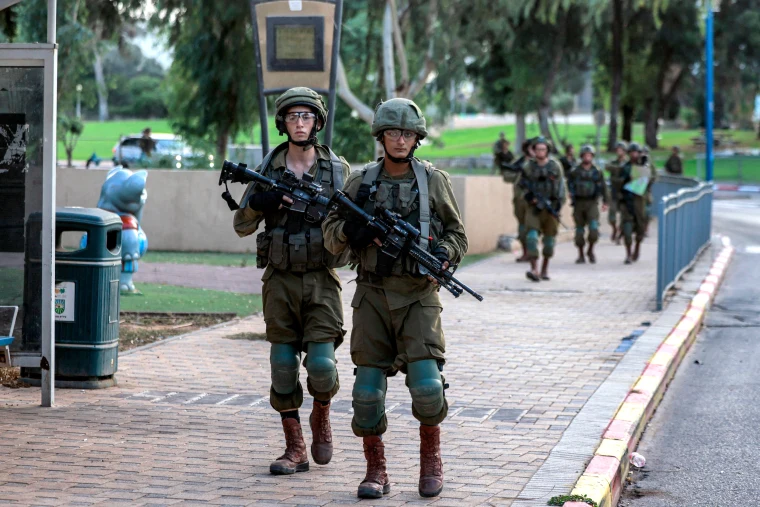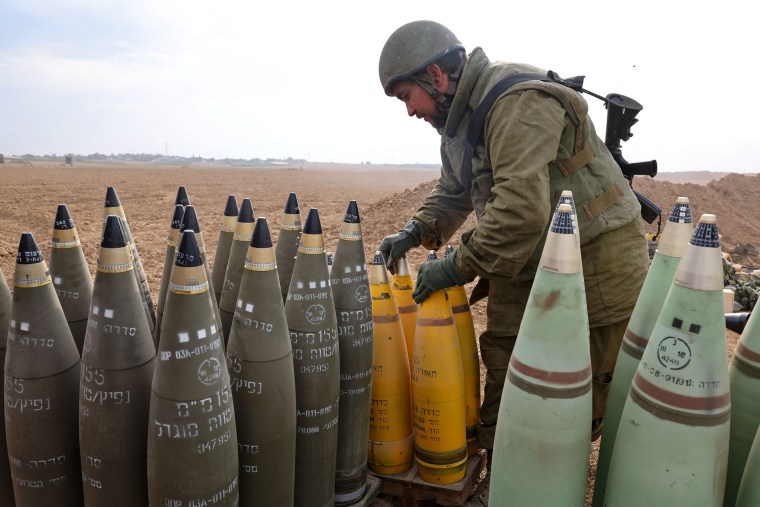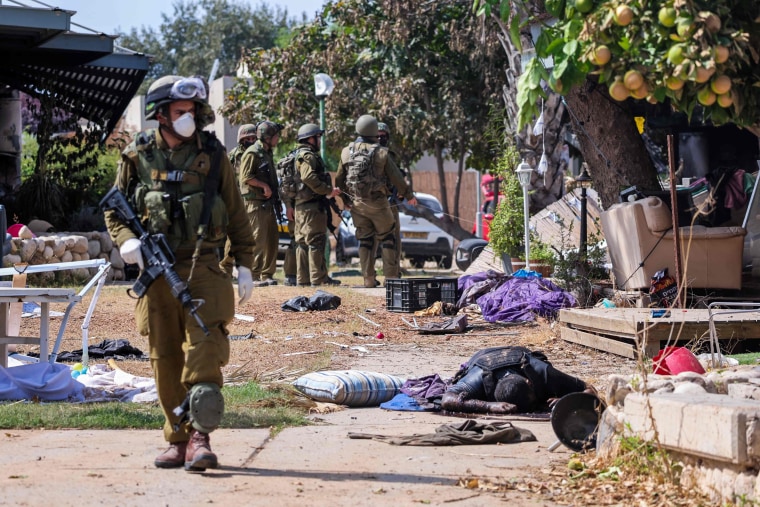KFAR AZA, Israel — The bodies of Hamas fighters lay on the streets of this kibbutz close to the border with Gaza on Tuesday, as Israeli soldiers went door-to-door to secure it days after it was overrun.
The bodies were among the 1,500 dead militants Israel says it found inside its border after Hamas’ surprise raid from Gaza.
Among the grim, extraordinary numbers that tell the story of the militants’ attack on Israel, that one, in particular, has dumbfounded experts. It raises the question of how large Hamas’ total fighting force is — and what a bloody, close-quarters ground offensive on the Gaza Strip might look like if Israel launches one in the coming days.
“I don’t think there’s a way to overstate how extraordinarily difficult it will be,” Tobias Borck, a Middle East expert at the Royal United Services Institute, a London think tank, told NBC News. “It’s not going to just be street-by-street, but house-by-house and tunnel-by-tunnel.”
Most analysts agree that some form of ground offensive is inevitable.
Israeli Prime Minister Benjamin Netanyahu, whose right-wing government is under pressure to react quickly and decisively after being surprised by Saturday’s attack, made it clear that this was unlike other conflicts with Palestinian militants: Israel would fight this war with a “mighty vengeance,” he said, as he and other Israeli officials vowed to destroy Hamas’ military capabilities.
That would be difficult if not impossible using airstrikes alone, which are already battering the tiny, blockaded Gaza Strip. And seemingly to this end, Israel has called up 360,000 reservists, adding to its standing army of some 170,000.
“I can tell you that we’re weighing the situation very carefully,” Israel Defense Forces spokesman Maj. Doron Spielman said Monday when asked if the military was preparing a ground offensive. “This is an entirely new paradigm to the way we have weighed other conflicts in the last few years.”
He told NBC News on Tuesday he did not have any additional information on a potential ground offensive, or Israel’s assessment of Hamas’ strength.
In 2021, The Times of Israel quoted an unnamed senior Israeli commander as saying that Hamas had an army of 30,000 men, replenished since its 2014 war with Israel. NBC News is not able to confirm those numbers, and Hamas does not disclose that information.
One problem with these estimates is, it’s not exactly clear what constitutes a Hamas fighter.
“Is that counting people who have held a gun, or only those who have received a degree of training?” Borck said. “Israel’s objective now is to destroy Hamas’ military capability. The problem with that statement is we don’t know what Hamas’ military capability is.”

To carry out Saturday’s attack, the militant group used some of its most elite forces, namely the Nakba unit, which has 3,000 to 5,000 fighters, according to Michael A. Horowitz, a geopolitical and security analyst who is the head of intelligence at Le Beck consultancy.
“So this means between half to around a third of some of Hamas’ elite commando force has been killed,” he said.
The 1,500 reported killed could also include fighters from a smaller Palestinian militant group, Islamic Jihad, according to Yezid Sayigh, a senior fellow at the Carnegie Middle East Center in Beirut.
Any ground invasion might resemble the last large-scale Israeli offensive into Gaza in 2014, which lasted 50 days. It came at a cost both for the Israeli army, which lost 66 soldiers, and the Palestinians, with some 1,400 of the 2,300 killed thought to be civilians, according to UNRWA, the United Nations’ relief agency for Palestinian refugees.

With more than 2 million people crammed inside an area twice the size of Washington, D.C., Gaza remains one of the most densely populated and impoverished places in the world. It has been blockaded by Israel and Egypt for 16 years, with the movement of goods and people strictly controlled, something Israel says is necessary to thwart the militants residing there.
But unlike nine years ago, Gaza is now also where dozens of hostages captured by militants over the weekend are being held.
In a conflict that strikes deep emotional chords in the region and around the world, the uncertain fate of these captives has added yet another layer of turmoil that only intensified after Hamas threatened to execute them if Israel bombed civilians in Gaza.

